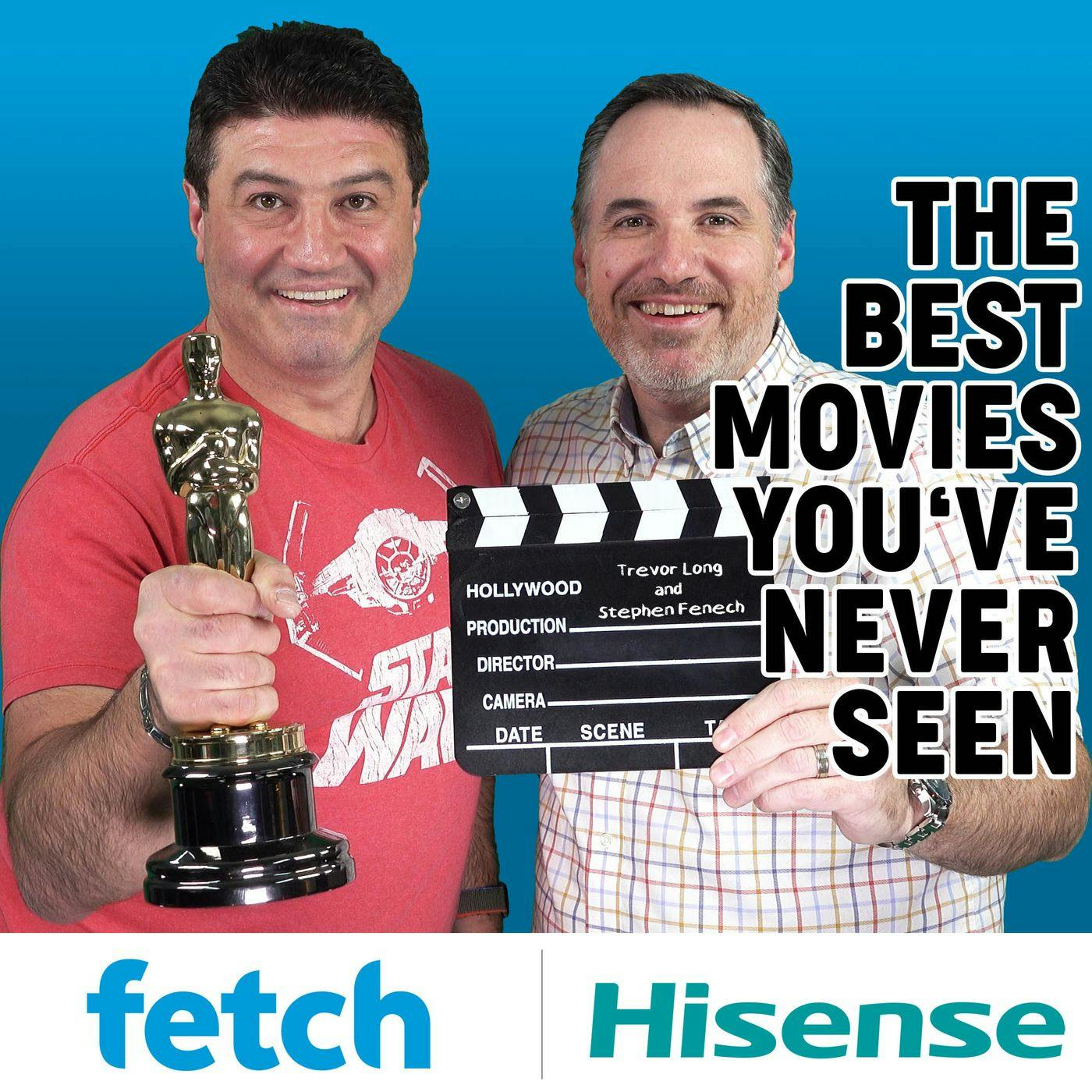.png)
The Late Bloomer Actor
Welcome to "The Late Bloomer Actor", a monthly podcast series hosted by Australian actor David John Clark.
Join David as he engages in discussions with those that have helped him on his journey as a late bloomer actor, where he shares personal stories, insights, and wisdom gained from his unique path as a late bloomer actor and the lessons he has learned, and continued to learn, from the many sources available in the acting world.
Each episode features conversations with actors and industry insiders that have crossed paths with David who generously offer their own experiences and lessons learned.
Discover practical advice, inspiration, and invaluable insights into the acting industry as David and his guests delve into a wide range of topics. From auditioning tips to navigating the complexities of the industry, honing acting skills, and cultivating mental resilience, every episode is packed with actionable takeaways to empower you on your own acting journey.
Whether you're a seasoned actor, an aspiring performer, or simply curious about the world of acting, "The Late Bloomer Actor" is here to support your growth and development. Tune in to gain clarity, confidence, and motivation as you pursue your dreams in the world of acting. Join us and let's embark on this transformative journey together!
The Late Bloomer Actor
The Joy Of Acting with Emily Joy
Text The Late Bloomer Actor a Question or Comment.
In this episode, Emily Joy, a working actor and coach, discusses her recent roles, the business side of acting, and the importance of perseverance and consistency in an acting career. The discussion explores the significance of self-taping, networking, personal branding, and the mindset required for success in the industry. Emily shares insights on the agent-client relationship and offers practical advice for aspiring actors to navigate their careers effectively.
Takeaways
- Emily emphasizes the importance of perseverance in an acting career.
- Actors should find side hustles that energize them rather than deplete them.
- Consistency in practice is key to becoming a bookable actor.
- Self-taping requires preparation and understanding of character function.
- Networking is essential for building relationships in the industry.
- Personal branding on social media can enhance visibility for actors.
- Mindset and self-care are crucial for sustaining an acting career.
- Actors should take responsibility for their career development, even with an agent.
- Understanding the industry landscape helps actors position themselves better.
- Actors should focus on creating work they are proud of, regardless of outcomes.
Find Joy Studio on Facebook and Emily on Instagram.
Please consider supporting the show by becoming a paid subscriber (you can cancel at any time) by clicking here and you will have the opportunity to be a part of the live recordings prior to release.
Please follow on Facebook, Instagram, YouTube and Tik Tok.
And please Rate the show on IMDB.
This episode was recorded on RiversideFM - click the link to join and record.
This episode is supported by Castability - an Audition Simulator, follow the link and use the code: LATEBLOOMERACTOR for 30% of your first monthly membership.
And finally, I am a huge advocate for and user of WeAudition - an online community for self-taping and auditions. Sign up with the PROMO code: LATEBLOOMER for 25% of your ongoing membership.
David John Clark (00:00)
Hello, hello everyone and welcome to another episode of the Late Bloomer Actor. And this month we are going to go straight to my guest now, Emily Joy, who is in the room. Good morning, Emily.
Emily Joy (00:09)
Good morning David, thank you for having me.
David John Clark (00:12)
That's good morning for us, obviously, but coming from around the world, wherever you're listening, good morning, good afternoon, good evening, or good weekend or whatever it is. Thank you very much for joining. Firstly, Emily, can I say congrats on your two recent roles in Fisk and Human Error, both shows that my wife and I love to watch and we watch together. It was great seeing you on screen in both of them and two very different contrasting shows to boot.
Emily Joy (00:36)
Thank you David. I know I could not believe my luck that I'm on two shows that are so different. I thought typecasting would be a problem but that just hasn't happened.
David John Clark (00:48)
Typecasting look at that straight into the business side of acting. love it. love it. Yeah, that's fantastic. It's really good to be able to talk to someone, especially when we're talking about, you know, improving your acting, both the business side of it or acting itself and that person is a working actor and they've got that experience.
I wouldn't use the word charlatan's maybe, but there's so many people out there that teach and provide services for actors, but then you go on their IMDB and they've never been on a set. So it sort of makes it a bit more real when someone talks to you and you know that they're doing the do, so to speak.
Emily Joy (01:24)
Absolutely. I always feel like I'm the acting coach that's just like half a step ahead. Like there's a lot of great coaches who did used to work back in the day or as you said, as some coaches who've never acted, but I feel like I'm one of the people.
David John Clark (01:37)
Mmm.
It's not to say that just because they haven't acted that they're not a good teacher, but it is one of the things that I look at when I reach out for support or training. So I love it. Now this year, as I said, I am focusing on the business side of acting a little bit. And I reached out to you as I've been very fortunate to listen to you a couple of times now with sessions you have provided for the Equity Foundation here in Australia, where you've talked about your love of mentoring actors through your studio, aptly named,
Emily Joy (01:49)
I'm in the trenches with you.
David John Clark (02:10)
Joy Studio. Can you give us a breakdown of your background as an actor in Australia and how you develop the Joy Studio concept as well as what services you provide to actors?
Emily Joy (02:11)
you
Thank you. So I started Joy Studio just a few years into my career. I sort of studied acting as a teenager and then went to drama school. And then I did a couple of years in my local market, which was Brisbane at the time, and got my first agent there as a local agent. And then once I booked some work in Queensland, I was ready for the next challenge of a bigger market. So we moved to Melbourne.
And then eventually after lots of hustling in Melbourne, got a bit more work, actually got some work back in Queensland, that always happens. And then eventually had enough credits and a referral to get my Melbourne based agent who I'm still with. And Joy Studio, it happened kind of accidentally. I was just setting up a home space to self tape in. And I'd been to a few studios around town and sort of couldn't find somewhere that I
really loved to work at. I sort of needed like a soft kind of warm welcoming approach, but then I also needed like a really keen eye on the scenes. And I felt like either people were like too encouraging and or were like so harsh that I've like doubted everything. And I just started offering to help friends self tape and go, hey, I've got a set up now. I'll be your reader and
they started to get callbacks and bookings. Like the rate of that was really, really high. But I still working in a cafe at the time, didn't ever mean for it to become my second income. And it just sort of grew organically. And about 18 months, I quit the cafe because the one shift a week I was doing was more annoying than it was helpful. And I went all in on my side hustle of Joy Studio. And I've been very intentional at keeping it
David John Clark (04:01)
Hmm.
Emily Joy (04:17)
part-time because it's something that could, you know, become my whole, I'm very aware of like, I'm an actor first and then the coaching comes second. But I really love it and I do self-tapes and then that developed into private coaching and career consultations as well.
David John Clark (04:18)
Mm-hmm.
I love it. love it. And you sort of mentioned there the side hustle. So is that something that you also help actors out with in your mentoring and look at it? Because it's such a big thing that's coming out now is that you need to, it's not your number two plan. It's not your backup plan, but it is your side hustle, something that has some income coming in. So what's your thoughts on that for actors finding a niche that they can have and so they can focus a bit more on their acting and not be that typical,
a waiter and say, I'm not a waiter, I'm an actor, but I'm just doing this on the side.
Emily Joy (05:07)
Absolutely, I it's so funny, I was talking to some girlfriends when I booked Human Error and that's a group of friends that we sort of were all early mid-20s together and then slowly over the decades they've sort of dropped off and found more traditional careers and family and other goals and priorities and stuff. But one of them said, I always knew Emily would book a series because she had a day job she didn't hate.
And I thought, gosh, isn't that funny? I do as part of the career consultations, I talk to actors about how can you make money that doesn't de-energize you? How can you, and I do believe in multiple income streams. I think it's way too much pressure to think you should only earn money from acting. And so we look at all the other ways and some of that's a mindset thing. Like you can be a waiter or you can work in retail because it's
David John Clark (06:05)
Of course.
Emily Joy (06:05)
flexible, it's a good hourly rate, it's work that you don't have to take home. So no matter where an actor is at with their other forms of income, we look at how to maximize that and how to make sure they're still prioritizing acting energetically as the number one thing.
David John Clark (06:23)
And eating as well, be able to afford to buy a meal. I can't remember where I read it or I listened to it, but it was overseas somewhere and a company set up a call center for their business, but they employed actors and it was because actors would be good in a call center. They've got that ability to articulate and everything like that.
Emily Joy (06:27)
Exactly.
David John Clark (06:46)
They understood what the acting career required. And if you said, look, I've got an audition, they would work around you. So I think that would be a fantastic opportunity. And obviously not something that comes up often, but it's about finding these opportunities, I think, isn't it? I just want to ask one quick question straight away before I go into some of the side of what you provide in Joy Studio's.
Emily Joy (07:01)
Exactly.
David John Clark (07:11)
What do you think actors are lacking in Australia or internationally that may be holding their careers back? It's a broad question. Well, yeah, from your perspective of working with actors, if someone asked you pretty much, well, so many actors are out of work and not booking roles, what do you think would be the biggest thing that people are lacking in a general standpoint?
Emily Joy (07:18)
from a business.
I think generally the ability to persevere despite setbacks. I see it all the time of you almost have to be a bit delusional to really make a great career because if you look at every role you don't book or every audition you don't get, every person you don't know, every agent that doesn't have you on their books, like you'll go crazy just thinking
that's evidence of it not happening. And I see actors get discouraged far too easily instead of looking at a wider lens of what success and progress in this industry is. So I think that's a huge stumbling block in not being able to remain consistent in your efforts of what you do daily, weekly, monthly as an actor.
David John Clark (08:21)
Mm.
Emily Joy (08:35)
That's separate to the feedback you're getting, that you don't sort of, that you're only like busy and networking and putting down scenes when you're feeling good. And then when things are quiet, you pull back as well. Be reactive, I think is a huge stumbling block. So I think I'm all about developing the habits and processes and systems so that you are pursuing your career, no matter what is happening or coming
David John Clark (08:50)
Mm-hmm.
Emily Joy (09:04)
back at you that particular month.
David John Clark (09:07)
Yeah, that's interesting. It's about the end game or the long marathon. It's not a sprint I hear quite often, isn't it?
Emily Joy (09:14)
Yes.
And that's such a great analogy because it's, it's literally so much better to walk the whole year than to sprint for January and pull over on the sidelines for the next month. It's, that slow progress. And sometimes people email me they're like, I want to book in with you, I want to work with you every week. And that, just doesn't happen. They burn out after two weeks or they, lose the motivation. And I say,
David John Clark (09:27)
Yeah.
Emily Joy (09:42)
don't see me every week, see me once a month, see me every six weeks. It's better to set up a process that you can stick to no matter how you're feeling, that you're not emotionally driven with your motivation, that there's a bit more discipline there of slow but consistent is faster than any kind of manic overproductive season.
David John Clark (10:06)
I like that because I attribute a lot of things that my learnings, being a late bloomer actor with a full-time career, so people in my position who have taken up acting, we do everything monthly. So monthly classes, a monthly this, a monthly that, because (a) you can't afford to do anything weekly and you don't have the time. So that's a really good concept in that
Emily Joy (10:18)
Mm.
David John Clark (10:29)
maybe that's not a late bloomer thing, maybe that's how you need to address it. You don't need to be all in. Now my son's doing, he's at Flinders Drama at the moment, so he's in his second year, which that is all in, but you are a student, that's like anything. So they are doing it every day, that's part of the degree, but then obviously when they come out, they change and have to look at the business side. So I mentioned there,
what makes a bookable actor and we started touching on it. So you've coached actors who have landed those major roles in Australian and international productions. So from a business standpoint, what separates actors who consistently book work from those who struggle?
Emily Joy (11:11)
It's that consistency and sustainability in their practice generally. And then with the auditions themselves, I find more and more great tapes are when an actor has gifted themself time to really work on it, which is such a conundrum and it's a bit of a contradiction because,
we're only getting, you know, 24, 48, sometimes 72 hours to turn around the tape. And so sometimes the thinking of like, there's not much time can come up. And I remember when I got my Human Error audition, I had three days to submit it and I cleared my schedule. I canceled appointments, I rebooked things, I missed out on work. And I remember telling someone this and they got quite...
upset of like, well, that's not, I could never do that. I have this other thing and this other thing, well, things that they perceive that they couldn't reschedule. But for me, it made all the difference because I knew the function of my character, Detective Maia Kirsner is exposition. Like all she does is feed Holly information that she has researched and intel about the case.
And I just had this feeling that the actor who books this role would be the one who seemed the most comfortable delivering a lot of exposition. And I knew it was three scenes that I could not be reaching for lines in. I knew that that would just mess up the rhythms and take me out of, because it's fast, know, skilled service workers have so much going on.
David John Clark (12:49)
Yeah.
Emily Joy (12:59)
that they're able to talk really rapidly, but still be so clear about the information they're delivering. And I really did need the three days to get my brain around what my character was talking about. And some of that in the three days was obviously sleeping, obviously, you know, hanging out with my husband, going for walks, forgetting about it. But it was a lot of script work and a lot of analysis to make sure I felt entirely comfortable in the scene.
And I think sometimes when we're showing up to auditions, not entirely prepared and with a bit of a wing it attitude or if a bit of a like, well, it's a first tape. If I'm right, I'm right. If I'm not, I'm not. There's a degree of that. But are you being honest with yourself in the amount of input you're putting in at the time and the energy and the space that you're investing into working those scenes up off the page and finding joy in that process as well?
David John Clark (13:57)
I love it. And then there's the joy of your name. Is there some self sabotage that actors may not subconsciously do because of that? Just being scared about the self tape? I hear so many actors who do not put in the work for it and they just go in and deliver it and then those and obviously don't get the roles and then that continually happens. So is that a...
Emily Joy (14:00)
I gotta have nap too.
Thank
David John Clark (14:24)
Would that be a self-sabotage type thing that people are doing because they just don't believe in themselves or they're too scared to push forward?
Emily Joy (14:31)
Yeah,
I think it's so hard because factually you won't get most of the auditions you go for. Like my A-list actors, they're booking like one in 10. Like one in 10 is an excellent booking ratio. That's like hugely high. That's sort of what, you know, the cream of the crop in LA are doing. One in 10. So nine times you're putting in, hypothetically, all this work,
David John Clark (14:48)
Yes.
Emily Joy (15:01)
all this energy, all this resource to send off a tape that you don't hear anything back from. if Exactly, exactly. And if you let that get to you or if you let that deter you, you've got, well, last time I had an audition, took, you know, two days off and I didn't book it. And now I'm behind on this financial thing or now I'm out of my friendship group or so. No, next time I get an audition, I'm going to I'll just do the half an hour before like.
David John Clark (15:09)
That's the hardest part for us, isn't it?
Emily Joy (15:30)
That's when the self-sabotage can come in because they're sort of letting the experiences of not booking affect how they then prepare for the next opportunity. Whereas we have to take every opportunity as no big, like it's not a numbers game. It's not, if I could just audition more, then I'm bound to book something. It's like, no, you'll book the auditions that you're right for and that you expertly deliver on. And sometimes it's also knowing, again, what I said about like,
the wider view of success is going, making a tape that you're proud of should be enough to motivate you and energize you to keep going. Or making a tape that your agent sees a different side to your skillset or making a tape that casting love. And they might not tell you, but they've made a note of you or they've written your name down or they've favorited your Showcast profile, knowing that you've sent off a tape. And even if you don't book the role, that producer or that producer's assistant
has seen your work and you now have a connection point there. So it's very much detaching from the outcome and going, no, auditioning is the work. How can I keep putting up scenes that I am proud of despite the very end result?
David John Clark (16:46)
Exactly. And it is, so hard when you don't get that feedback. I think I mentioned it on a previous episode, but I, did an audition last year for an Australian show, which I didn't get the role, which, you know, this, this happens, but I was very fortunate to see some email traffic between my agent and the casting director because they, they asked me to come on and do a voiceover for the same show later on. And in that question, we're saying, look, is David available to do this?
We really liked what his work was for his submission. So that was great to hear that feedback because you don't normally get it. So it didn't mean I obviously didn't submit a bad tape and I wasn't, I just wasn't right for the role, which is what we've talked about. So it's great to get that feedback. So we've segwayed fantastically into my next question, which is the art of self-taping. So they're now pretty much a standard part of the industry. So what are some of the key business-minded strategies actors should adopt
to ensure their tapes stand out and get noticed.
Emily Joy (17:44)
I think from a business point of view, it's about understanding the function of your character. Sometimes I see actors prep every tape as if they're a leading role and that's just not what the story requires of you. So it's not even necessarily you have to know who the director is or who the producers are, who the writer is, that info is helpful. But I think it's so important to understand why is my character there? How do they...
help or hinder our lead? If they are the lead, what is their main goal? And how can I bring detail and specificity to the relationship that my character has? And that will be there whether you're a supporting role, whether you're a bit part, but I find a lot of actors just go straight to like, how do I make this scene interesting? Or how do I make this tape dynamic? And sometimes a tape won't require that.
Sometimes less is more. If you're just waiter number one, your table's this way, sir. You don't need to overthink that. Just tell them the table's this Exactly. And so sometimes this idea of like, I wanna stand out. It's like, no, no. In Australian casting, every casting director is so intentional about who they see. It is very rare that you'll be one of like 50 or 100 actors
David John Clark (18:51)
It's pretty hard to stand out.
Emily Joy (19:11)
taping for something. You're probably one of 10, one of 20, and certainly in the casting assistant work I have seen, it's a much smaller pool than you think. And so therefore you've already stood out by getting the audition where they got thousands of submissions and they clicked on your profile and said, confirm a self-tape request from this actor. Therefore the proving of yourself, that's already done. That was an unseen part of the process. Now it's about bringing the scene to life
in a way that honors the story.
David John Clark (19:43)
Yes, it's, and you're, you're saying there about, you've got that audition. So that on the business side of the acting, that is the successes, isn't it? Now I keep a spreadsheet where, I record all my auditions and I try to encourage actors that I talked to to do this as well, because that is when you are feeling down and going, I'm going to give up. That's what you need to look at and say, no, look at all these casting directors that have reached out and asked for me to submit.
Emily Joy (20:10)
Exactly,
that's the data. That's absolutely right.
David John Clark (20:14)
Now, would you call yourself an acting coach or an audition coach? How do you see those two roles being different and how do actors use them for, if they've got a big audition coming up?
Emily Joy (20:31)
Yeah, there is a slightly different approach. I find when I'm audition coaching, I really am interested in what the actor is bringing in and what their instincts and ideas are because ultimately they're going to be the one on set doing the job. Starting out, would sort of overstep a bit and, you know, give a whole lot of detail and then the actor would book the role and then...
kind of flail on set because they didn't, it wasn't organic from their own ideas. So when I'm audition coaching, I'm supporting the actor in what they want to do. I'm always asking what they need from me as a reader. I'll help them emotionally kind of in the lead up to a scene as a bunch of different exercises and tools if they need to be in a heightened state or if they need to be mid conversation, we'll do some improv.
So there's things like that and we're really working to get the scene to a place where they're really proud of their performance and their work. And then general acting coaching is more about challenging my actor and assigning them scenes that are a little outside their comfort zone or separate to their regular casting type. I'm really trying to stretch them so that their skill set is always getting worked in a way that is
over preparing them for the next audition opportunity.
David John Clark (21:57)
That's interesting. Obviously you've done auditions yourself both in the room and self tape. What's your favourite? What would you prefer if they gave you the opportunity?
Emily Joy (22:09)
Yeah,
I love in the room. I love meeting people and you know, if the director's there, it's so wonderful to talk about the story or their ideas. I mean, I had an audition recently where the director's notes were so in opposition to what the big print for the script was. And I was like, I was just thinking, was like, wow, if I had taped this, I would have had no idea that this was the dynamic of the relationship that they were looking for.
David John Clark (22:29)
Hmm.
Emily Joy (22:39)
So it's nice getting that extra intel. But then I also love taping because there's certain things that I love that I'm comfortable doing at home. And it's a lot easier and more convenient than traveling out somewhere. But if I have the choice, I'd always choose in person.
David John Clark (22:57)
I like that because I certainly, I deliver what I think I'm, I just deliver. But I do take direction very, very well. And I like having that, like when you're on set, that's why we have a director. So I love being in the room because they do say, love that, but let's try it this way. Or no, I know that the, writer and the director relationship, they've got something a little bit different. They want to be dark or something like that. You know, things that you don't see, like you mentioned. So it's just,
I guess that's the way things are changing. But at end of the day, a callback is where that's going to happen, isn't it? Whether it's on Zoom or in the room.
Emily Joy (23:34)
Yes, yes, that'll be part of it as well.
David John Clark (23:37)
So one of the other things that you've already talked about as well is getting an agent. So I wanted to ask you about getting an agent versus managing yourself. So last month I spoke with Brian Patacca who primarily focuses on getting an agent around the world, but you've helped actors sign with their dream agents as well. What do you think actors misunderstand about the agent-client relationship and what should they be doing on their own
to move their career forward, regardless of whether they've got an agent now or seeking one.
Emily Joy (24:09)
I think they misunderstand that the agent's commission is the percentage of work. Like they're doing 10 % of the work and 90 % of it is up to you or 20 % you know some do 20 % for commercials and stuff. So I think a lot of people view an agent as like a saving grace or like oh if I could just have a great agent then they would get me opportunities and open doors for me. They can't even open doors I think they can like
present doors, but there still has to be someone then that opens the door and you still then have to walk through the door. So I think that a bit of a misconception is that an agent will make your career. There are lots of great actors with fabulous agents who don't work a lot. And there are a lot of great actors with no agent or really niche or small or boutiquey or just starting out agents who are working.
David John Clark (24:46)
Definitely.
Emily Joy (25:08)
I think we can never give all our power over to another person who ultimately, even a great agent, is managing 30 other people. So even just statistically seeing it that way of, I really am responsible for the quality of my career and the things that I'm doing to support that work that my agent does for me.
David John Clark (25:30)
I hear that a lot. I try to do the same. I think I saw a video recently. I think you did it last year about you've got to be on Star Now. Is that the side of what you're saying is to find your own work? And especially if you're a freelancer, finding those opportunities both in your local area and interstate, regardless of whether you're in Australia or the States or the UK.
Emily Joy (25:57)
Absolutely, I think platforms like Star Now, the bulletin version of Casting Networks, Facebook groups, Instagram pages, there's that that you need to be on top of yourself and then there's also your own relationship development within the industry that is your responsibility to build an agent. They might even introduce you to people but they can never...
make you be friends with someone that is up to you. And that's a huge part of how our industry works through relationships. And so a lot of actors are missing that in their business toolkit of, do I have the systems in place to meet and nurture and reconnect with writers, directors, casting directors, producers, other actors? Your network is everything.
David John Clark (26:50)
And so many people roll their eyes or balk at the idea of networking. So it's, I come from a public service background, so I have an opinion about networking because it's still to me has always been a boys club sort of thing. And networking has been treated about knowing the right person so you can get the job that you don't deserve. It's the way I've always looked at it, which is why I treat the word networking in that way, but that's in a creative
Emily Joy (27:12)
That's it.
you
David John Clark (27:20)
world that we live in. That's what networking is about. It's about that collaboration, isn't it?
Emily Joy (27:25)
It's about understanding that filmmaking or theater producing for the creatives is so risky. They are having so many elements against them. Funding, locations, permits, weather, everything is making their job difficult. So no one wants to add personnel to that list. No one wants...
a human being or a fellow worker to be one of the things making the job harder. So everyone, if the choice is there and if they are right and suitable for the role, everyone would prefer working with their friends because the job itself on a holistic level is so difficult with so many elements outside their control. So it's not about
that person, they just got the role because they're friends with that person. No, there's familiarity there. There's collaboration there. There's a history of knowing that this person is trustworthy and reliable. And I think that's what people miss or kind of roll their eyes at when they see the same director working with the same actor again and again. It's like, no, no, this system works and it means that once you're in, you will continue to work with certain groups of people and that's...
David John Clark (28:26)
Hmm.
Emily Joy (28:49)
a really beautiful thing, but and it's something within our control, right? That's why I always lean into it because I don't know what's getting greenlit by Screen Australia right now that I'll have an audition for in three months time. I don't know what projects are going to be happening at the end of the year, but I do know who I am aware of, who I reach out to, who I invite to something, who I take to a screening of something, who I email a congratulations note to,
David John Clark (28:59)
Mm-hmm.
Emily Joy (29:18)
who I follow on Instagram or Facebook. Those are all things that we can be working on that have nothing to do with our agent or even what auditions are coming through that lead to more opportunities.
David John Clark (29:31)
And you said there before that, you only got that person only got the job because they're friends with the casting director. Well, I consider Greg Apps a friend now and mentor and Louise and Angela Heesom here in South Australia. Both, they're all casting directors. But when I first reached out to them and when I first met them, we weren't friends. They were casting directors and I was an actor and I've gone on a course with them or whatever. And over time that
Emily Joy (29:41)
Yeah.
Exactly.
David John Clark (30:00)
relationship has developed into what I can now call a friendship. So I don't think it changes anything because they still have a job to do and they still have to put the best person forward. So you're not getting the jobs because I know them better than the other person, so to speak. it's, is that networking, isn't it? That becomes a friendship. So
Emily Joy (30:21)
And everyone's networking whether you're intentional or not. We all know people, we all know a plumber we recommend or a hairdresser we wouldn't go to. We're always looking for what is trustworthy, what does my friend, or they've already tried that product and they recommend it. We're always looking for ways to know that something is a sure bet.
And so networking people like, I don't network. It's like, no, but you do. Everyone is doing it all the time. It's a little bit more intentional about it. And look at, as you say, it's actually friendships. It's actually how do I build and cultivate a pleasant working relationship or mutual like and respect. And as you say, over time, someone that you respect becomes someone that you trust becomes someone that you like.
David John Clark (30:52)
Definitely!
Emily Joy (31:15)
And therefore, before you know it, you're wishing Greg and Robbie happy anniversary or they're the same thing to you. And so it's something that just happens organically when you've been intentional from the outset of this is someone that I'm interested in beyond one particular job.
David John Clark (31:19)
Definitely.
Love it. I love it. Just one quick follow up question, going back a bit to agents. In your opinion, regardless of where you are in the world, where do you think people should reach out for their agents? Should they stick to their local area, like here in Adelaide, should you have an Adelaide local actor, or should I reach out or should actors reach out to the Eastern States where the majority of work is? In America, the same, you know,
it's New York or Los Angeles where majority of the agents are, but there are agents in local regions. What's your thoughts on that?
Emily Joy (32:07)
I I would look at working in such a way that you are eventually approaching agents who you have a referral to. There is of course the kind of scatter gun approach of you just Google great agents in your city or even your country and sure why not send off your materials but unless you are like the exact type of actor that they're currently looking for.
That approach often is just your email getting unread or a very kind of generic, thanks for your email, our book's a full reply. So the way that I see actors have meetings with an agent, which is the ultimate goal, to feel each other out on both sides, I have seen that time and time again happen when they have been introduced by a mutual contact.
David John Clark (32:58)
Hmm. Yeah. And that's interesting. And that's about your career progressing forward. So I had an agent here in Adelaide for several years and they were fantastic. I loved them, but I made that decision that I needed to then step up to the next level, you know, and that's where we all want to focus in our careers. So then I reached out to Sydney and Melbourne and been fortunate to be with a Sydney agent now. So that's about progressing your career, isn't it? And that's what it leads into...
Emily Joy (33:24)
Absolutely.
David John Clark (33:27)
your branding as an actor, building a personal brand, which I think you focus on a lot in your coaching. So in today's industry, visibility is key. So how much focus do you think actors should put on their personal brand, including things like IMDB, social media, showreels, to create the opportunities for themselves?
Emily Joy (33:47)
Absolutely, think social media and your kind of presence online is just such a great way to supplement what is happening in the formal capacity of your agent submitting you for briefs, right? If they're taking care of, you know, official auditions and official opportunities coming through, what are you doing in the in-between times? And I think something like Instagram and Facebook, you don't need to be on every platform, but picking one or two that you can...
invest in is so wonderful for learning more about people, seeing what's coming out for watching things, supporting things and being in a way that someone can look you up online and learn more about you than what's on your Showcast or Casting Networks profile. People really like seeing what your personality is or the fact that you have family or the fact that you go on holidays. You're a three-dimensional human. I think it's really important to ...
It's one of the first things I say to someone who does a career consult with me is like, get your Instagram off private. Like you need to be public. If I'm a director, I need to be able to look you up and see what you're about. And a lot of people aren't taking advantage of technology and the internet and the power that it can have in connecting you with people.
David John Clark (35:05)
And I guess there's the negative side of that too, is being aware of knowing that what you put out there on social media is easily found. So if you have very, very strong or opinionated opinions on Donald Trump or politics locally or whatever's happening in the day, I think you need to be mindful of that, don't you? It doesn't mean don't speak your mind, but you need to be mindful of that environment, especially if...
Emily Joy (35:19)
you
David John Clark (35:31)
yeah, it's taken the wrong way, which is what happens a lot on social media.
Emily Joy (35:35)
Absolutely, I mean, I don't think anyone's, I think a lot of people think that and feel like, well, I just won't post anything because I don't want to upset anyone. It's like, no, think about what you value and what you want to be known for, what causes you do want to support, and you'll find someone in the industry who agrees with you. So it's not to be scared or shy of cancel culture. It's about knowing that you won't get along with everyone.
But if you are true to yourself, you'll find like-minded creatives to connect with.
David John Clark (36:09)
I love that. if you're hitting the pubs every weekend and getting smashed as they say, that's the sort of stuff you need to be mindful of and keep off because it might.
Emily Joy (36:18)
Yeah, we'll find a
fellow partier who also rolls that way. There's a lot of people out there.
David John Clark (36:26)
You were talking before and I'd like to see what you had your career counseling, what you call it, your career counseling session, consultation. Yeah. So you emphasize mindset and confidence in your coaching. So how does an actor's mindset impact their ability to create opportunities and sustain a career?
Emily Joy (36:32)
Consultation.
Oh, it's so huge. I think the mindset underpins everything because ultimately it's how you're seeing the world and how you're thinking about your career and how you're perceiving your ability to succeed. Kym Jackson said it in her interview with you of whatever you think you will find evidence for. If you think there's not many opportunities, if you think you never get cast in self tapes, if you think...
no one watches your American auditions. Like you'll find evidence for that. But if you think that you are a working actor, that you do have a knowledge of the industry, that you love acting, that you are energized by it and put effort into it, you will find more and more evidence that supports you in that. So I think, you know, a lot of actors don't realize that a task you can do for your acting
is radical self-compassion and radical self-care. Things like going for a walk or sleeping in or watching a crappy reality TV show. That is for your acting career because ultimately we are the asset. You know, any business principle they say, protect the asset, protect the asset. And in this business, that's us. That's our health, our wellbeing, our headspace. I also love that quote, which is,
David John Clark (38:02)
Exactly.
Emily Joy (38:04)
You can live in the fanciest house in the world, but you still have to live in your own head. And if that's not a pleasant place to be, if you are overrun with thoughts of self-doubt or limiting beliefs or assumptions that you're clinging onto is true, it's going to make progress really difficult because you're adding a stumbling block before the industry even does. There will be external stumbling blocks. There will be quiet periods. There will be auditions you're not right for or casting directors you don't connect with.
David John Clark (38:08)
Hmm.
Of course.
Emily Joy (38:33)
So you don't want to add to that list and make it difficult for yourself to even value who you are and what you are able to contribute.
David John Clark (38:43)
Exactly, exactly. And in a career consultation with you, what are your initial steps with actors? What are you looking at and developing and how do you approach an actor when they first appear in the Zoom call with you?
Emily Joy (38:57)
Well, before we meet on Zoom or in person, I send a preparation document. So I ask for things like your headshot, your resume, your showreel, three recent self-tapes, and then there's a few questions around goals and stumbling blocks and things like that. And so I just get a really great sense of where the actor is currently at. Are they...
looking to go to drama school? Have they finished their training and they're looking to get their first agent? Are they transitioning between agents? Have they booked a few professional roles and are looking to increase that? Are they looking to get their first professional role? So sort of see where they're at in their career. And then we sit down and go through the things that are working really well that they need to keep doing. And then the things that they're missing, the blind spots that are potentially there of how to increase
success and joy in what they're doing and to have a really clear plan at the end of it of their steps moving forward. So there's the 90 minutes that we spend together talking and then there's also another email that I send afterwards of the resources or the specific tasks that I'm looking at them to include in their work as an actor.
David John Clark (40:00)
Nice.
And that sounds like you're focusing on both sides, so on the business side of acting as well as the creative side. They go hand in hand. Is that what you're saying?
Emily Joy (40:24)
Yeah, it's a very holistic approach.
David John Clark (40:27)
Yeah, Brian Patacca mentioned that a lot. He says as much as you've got to focus on the business side, you don't let go of that creative side. That's what we're here for and that's what we're in. So you need to have an understanding of that, but to bring it always back to that creative side.
Emily Joy (40:41)
Absolutely.
David John Clark (40:43)
And as we wind up, I just wanted to ask you, the industry is evolving with self tapes and AI and streaming and lack of money in distribution companies, et cetera, et cetera. That's changing the whole environment. What trends do you think actors should be preparing for to stay competitive in the business?
Emily Joy (41:05)
That's such a good question. I think there's always going to be things that threaten our livelihood and I think everyone pursuing acting in the last five years, I mean we've had such a rough go of it with you know the strikes and then COVID and then you know the LA fires that I feel like that had a ripple effect. Funding is always a thing under threat. AI is now the new kind of awful so it's like avoiding any work with AI.
David John Clark (41:13)
Of course.
Emily Joy (41:34)
And advocating for artists and knowing that your humanity is what makes you the storyteller. And it's understanding those very real industry, the news of what is happening, but not letting that deter you and knowing that you'll find a way and that ultimately what brought people the most comfort in lockdown was watching things.
As Sean Baker said, go to the cinema. I think people still ultimately want to gather and hear stories. And what we do is meaningful and important. So you have to stay the course and not let any of the bad news deter you and be flexible and be agile. Sometimes there will be a chemistry test on Zoom and you think, how the hell am I meant to create chemistry when I can't even look in someone's eyes?
David John Clark (42:07)
Definitely.
Great.
Emily Joy (42:28)
So there will be little things that you'll have to adjust to or change about your process, but ultimately the world wants to consume film, television and theatre that either reflects society back to us or provides an escape and to take comfort in the fact that you are a part of that.
David John Clark (42:50)
Definitely. Definitely. I think so many people scared about AI taking over. And I think no longer are we going to see a movie recruit a thousand extras for the crowd scenes. It's just a given that they're going to develop that in AI and they've been doing that for years anyway. But I think down on the screen and people are scared that we're going to have an AI actors and stuff. I think it's, you mentioned before that human touch that it will never be generated about seeing a person on screen.
So to speak, and even the AI generated Tom Cruise's that you see on, on the screen that you, it, even though they're, geesus they're damn good, but you just know it's not him and you know, you can just feel something not quite right there. So that's what we have to hold out for, isn't it?
Emily Joy (43:34)
Absolutely, it's uncanny and I think more and more we're going to go the other way of like, look how many non-traditional actors we've seen in leading roles recently, look how much diversity we're seeing, look how much inclusivity and inclusive casting and authentic casting we're seeing. Audiences are ultimately hungry for something real and something palpable in front of them and a computer can just never recreate that.
David John Clark (44:03)
Most definitely, most definitely. Well, Emily, thank you very much. This has been a wonderful chat. Now, if anyone wants to reach out to you for coaching services or help with their self tapes, what's the best place is to find you and I will put them in the show notes, of course.
Emily Joy (44:18)
Thanks, Joy Studio acting on Instagram is where I am.
David John Clark (44:23)
Wonderful, wonderful. I know, as I said, I'll put them in the show notes for people to reach out to you. What one piece of advice, it's probably a summary of everything we've chatted about. What one piece of advice would you give a struggling actor to propel their career forward if they wanted to do something today, right now?
Emily Joy (44:41)
Watch an Australian production and stay for the credits and start taking note of who is writing, directing, producing and casting the shows you're seeing.
David John Clark (44:54)
Wonderful. And obviously with listeners around the world, it's the same in your local area. Understand the market that you're in. Watch the films. I love it. My wife has to hang around in the cinema because I want to watch the credits. Which is great sometimes because then you don't know which movies have got that snippet at the end. I know Marvel do it all right. And you go, ha ha, everyone left and I'm still here. I love it. Emily, thank you very much for joining us today. It's been an absolute pleasure to have you on board.
Emily Joy (45:17)
Like a reward!
Thank you so much, David.
David John Clark (45:26)
Cheers.
Podcasts we love
Check out these other fine podcasts recommended by us, not an algorithm.
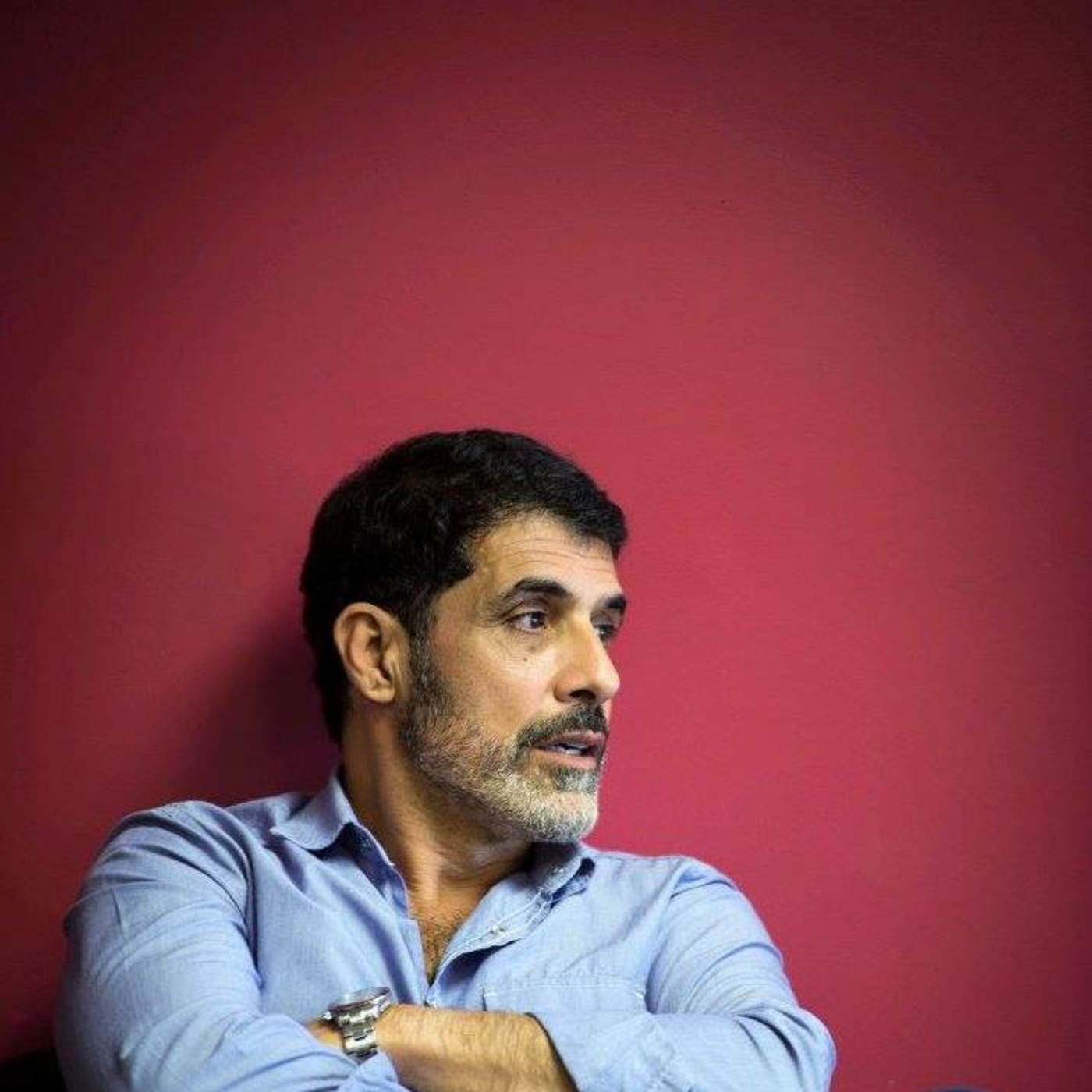
The Real Life Actor
Jeff Seymour
Audrey Helps Actors Podcast
Audrey Moore
Tipsy Casting
Jessica Sherman and Jenn Presser
Castability: The Podcast
The Castability App
Wendy Alane Wright's Secrets of a Hollywood Talent Manager Podcast
Wendy Alane Wright
Think Bigger Actors Podcast
DaJuan Johnson
ACTORS! YOU ARE ENOUGH!!
Amy Lyndon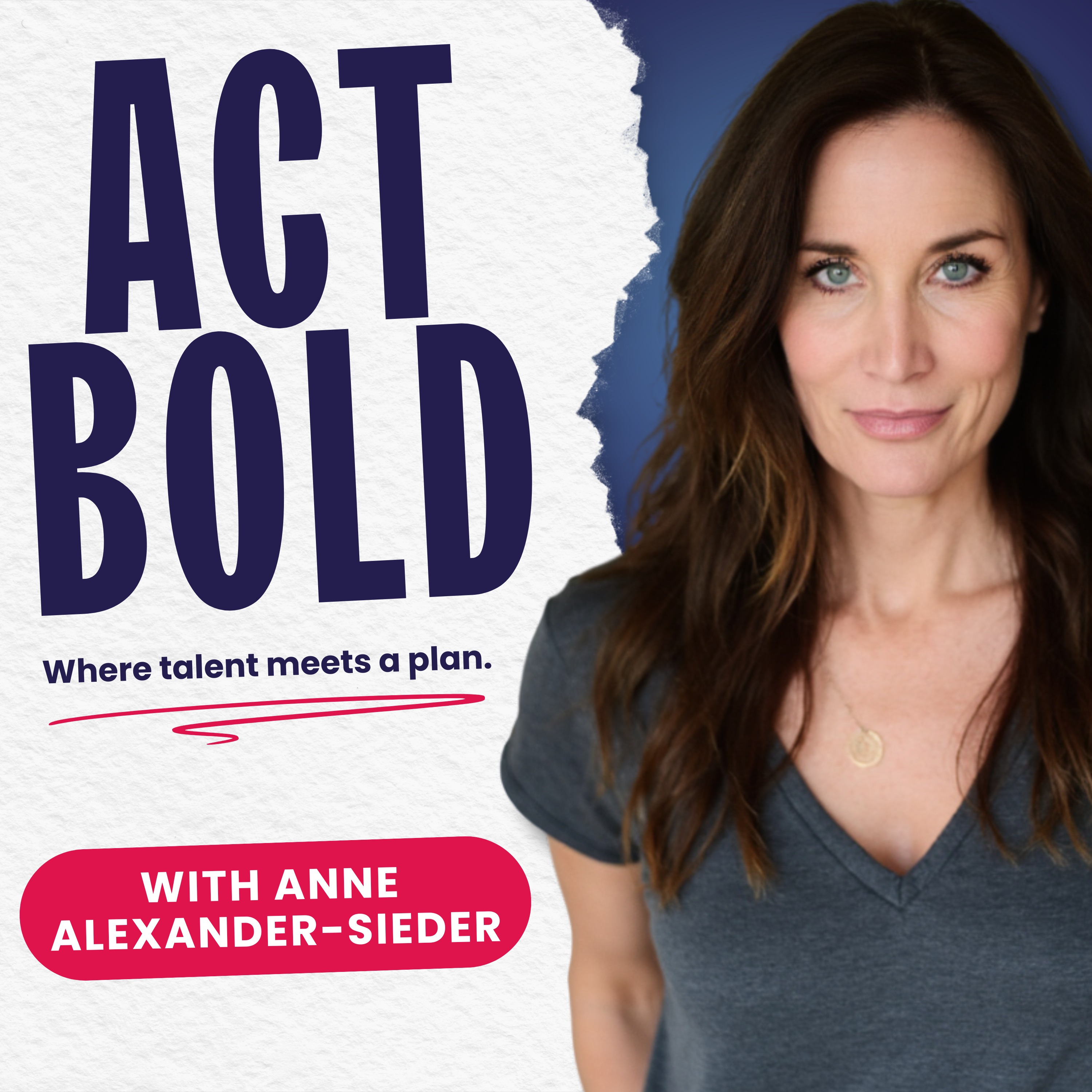
Act Bold - Where Talent Meets A Plan
Act Bold with Anne Alexander-Sieder
An Actor Survives
Emily McKnight
Podnews Weekly Review
James Cridland and Sam Sethi
Buzzcast
Buzzsprout
Box Angeles (for Actors)
Mike 'Box' Elder
Brian Breaks Character
Brian Patacca
Celebrity Catch Up: Life After That Thing I Did
Genevieve HassanCinema Australia
Cinema Australia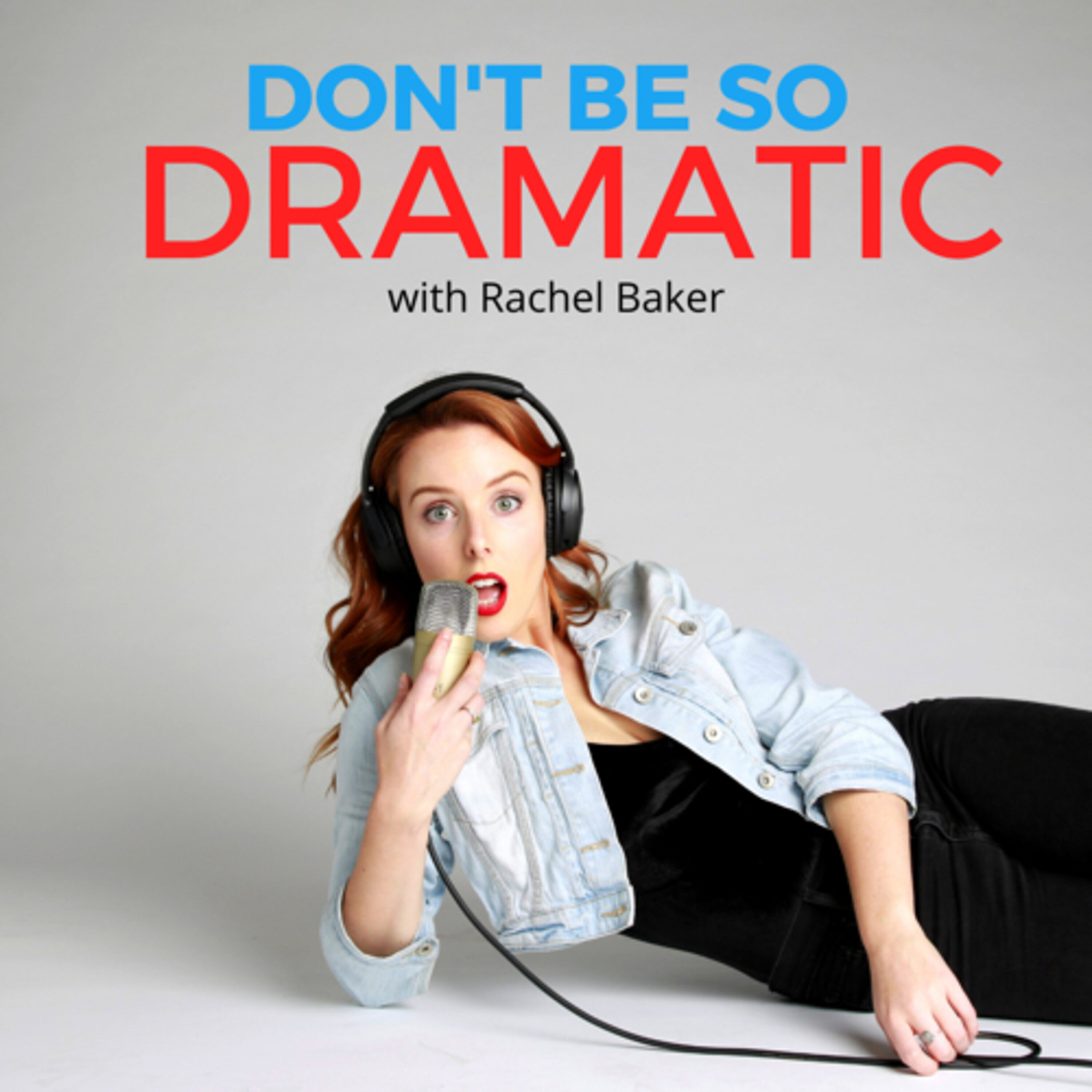
Don't Be So Dramatic
Rachel BakerEquity Foundation Podcast
Equity Foundation PodcastIn The Moment: Acting, Art and Life
Anthony MeindlIn the Envelope: The Actor’s Podcast
Backstage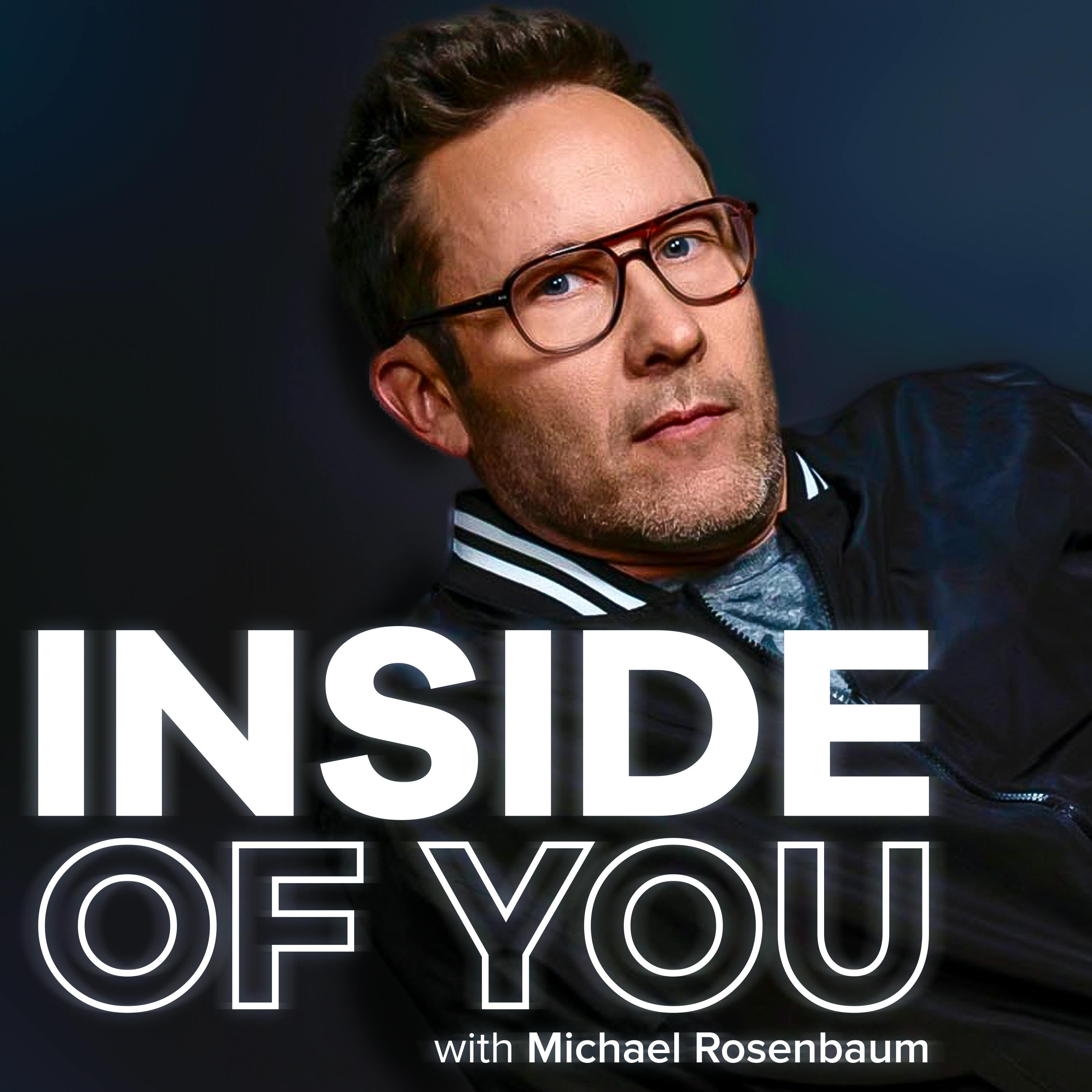
Inside of You with Michael Rosenbaum
Cumulus Podcast Network
Inspired by Nick Jones
Nick Jones
Killer Casting
Lisa Zambetti, Dean Laffan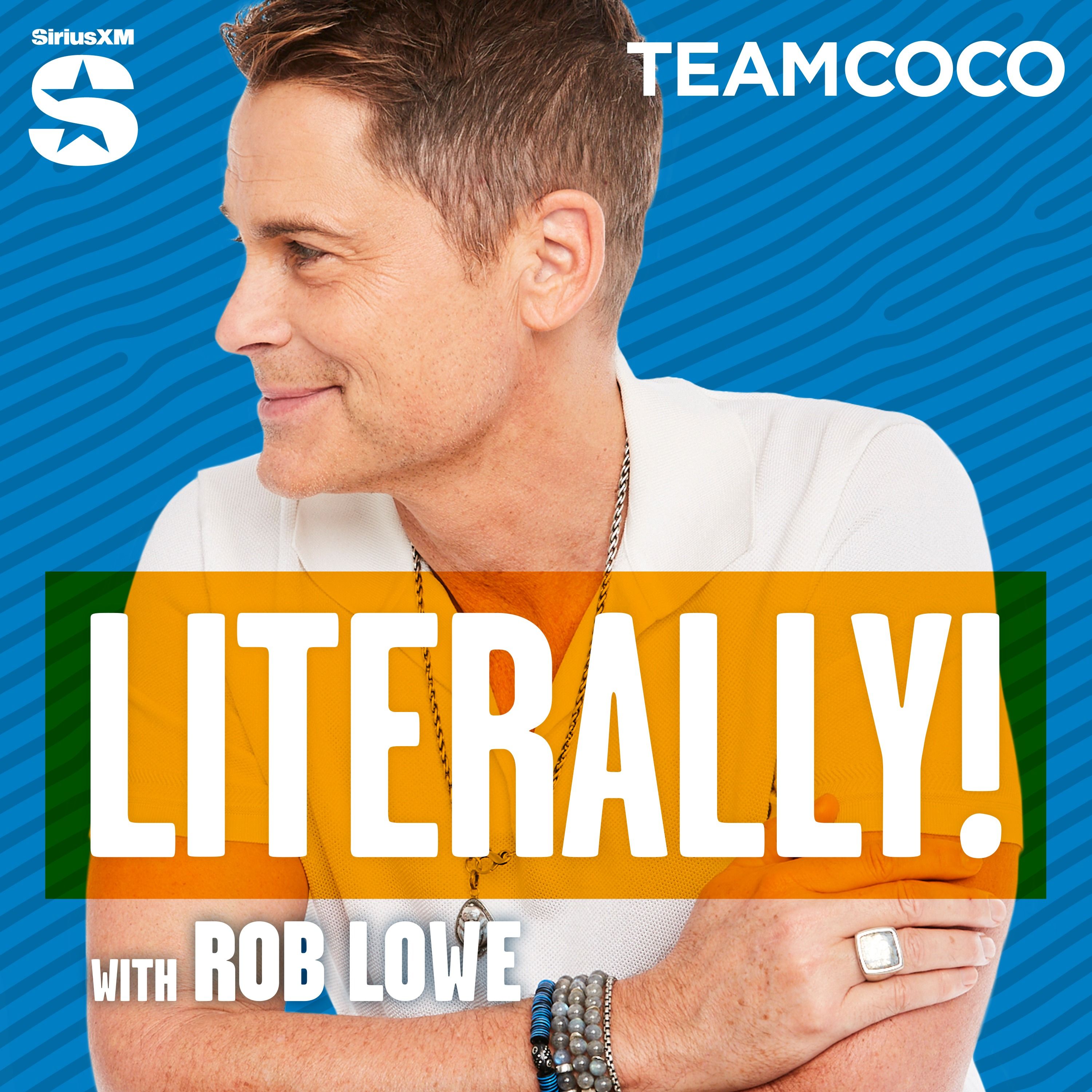
Literally! With Rob Lowe
Stitcher & Team Coco, Rob Lowe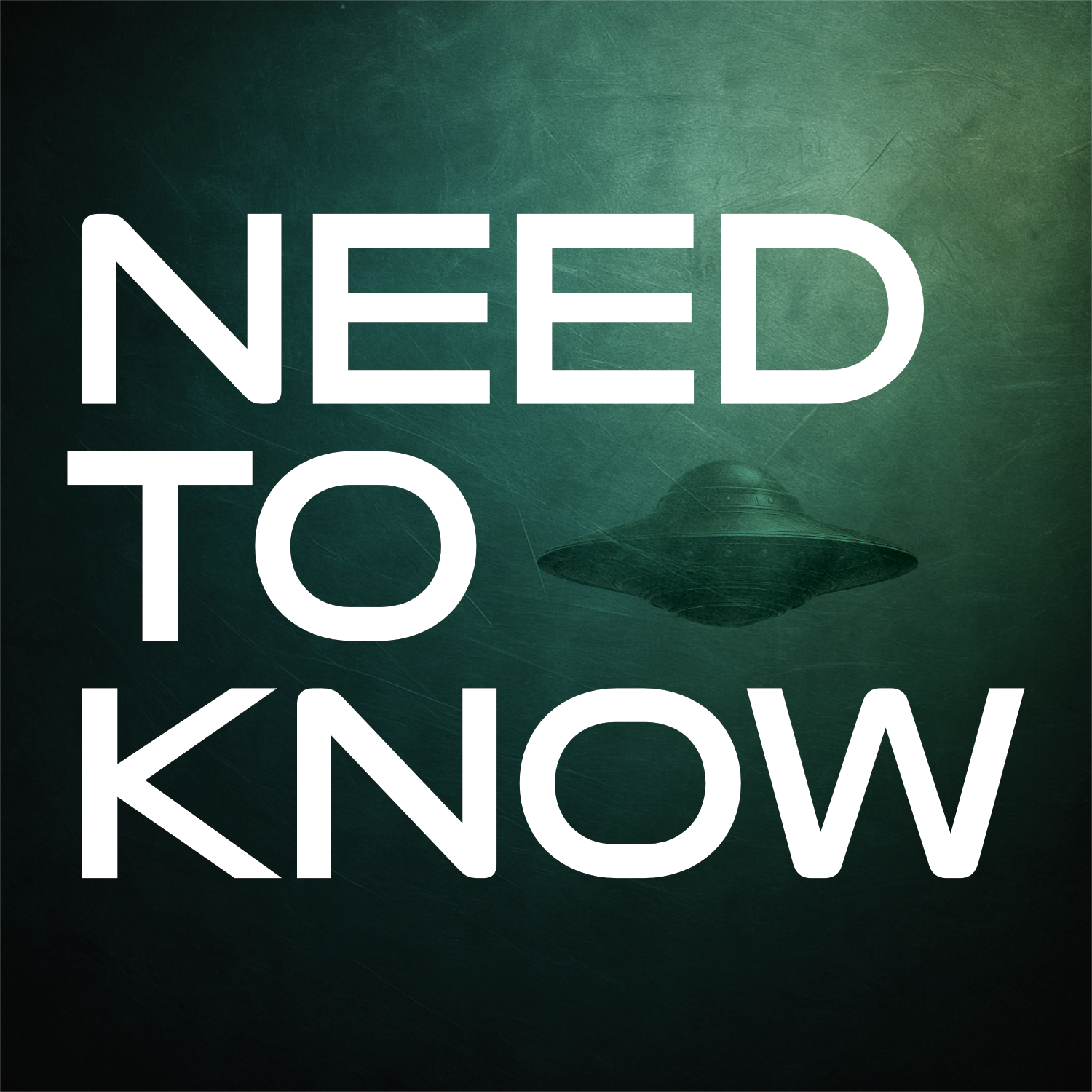
Need To Know
Bryce Zabel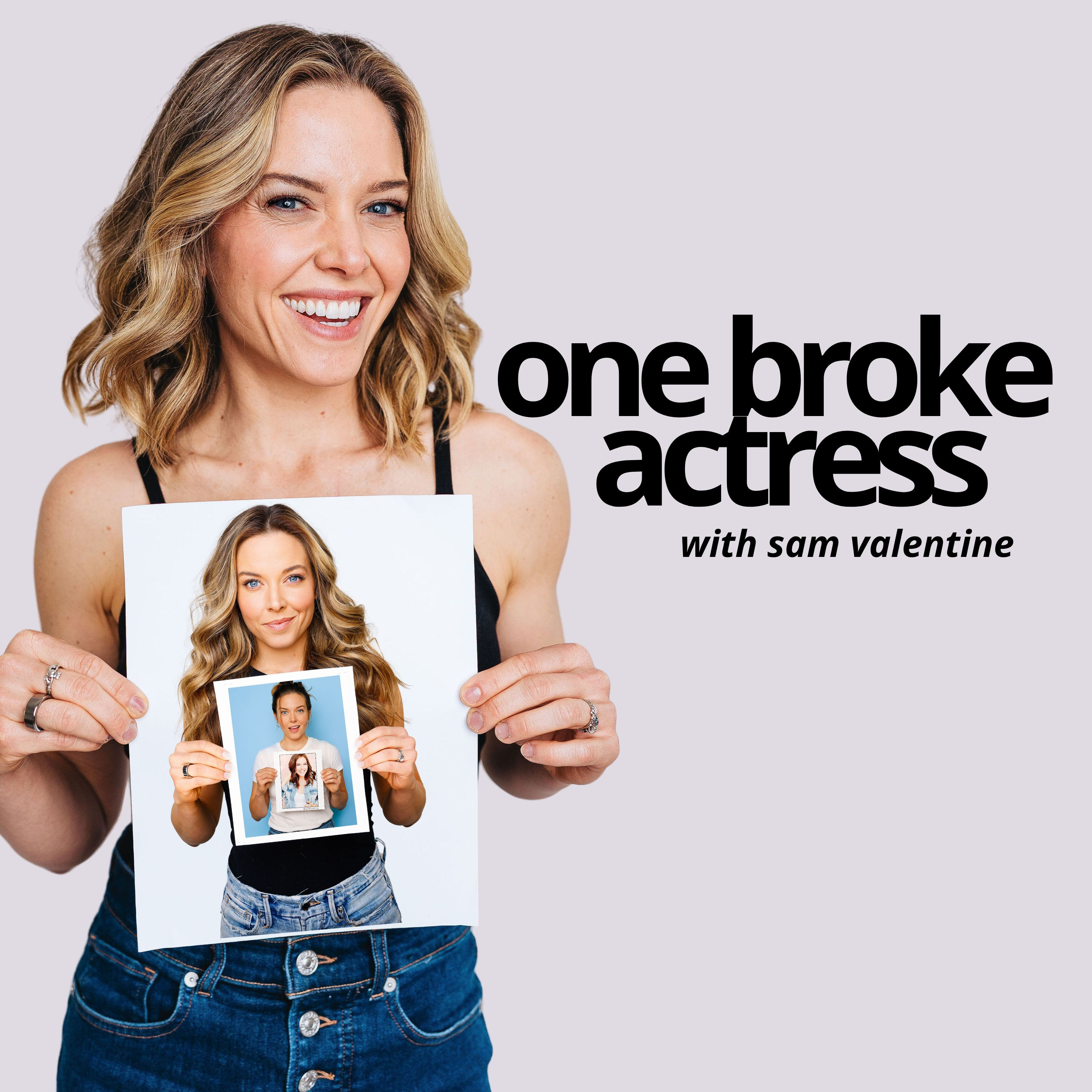
One Broke Actress
Sam Valentine
REAL ONES with Jon Bernthal
Jon Bernthal
SAG-AFTRA
SAG-AFTRA
SAG-AFTRA Foundation Conversations
SAG-AFTRA Foundation
Second Act Actors
Janet McMordie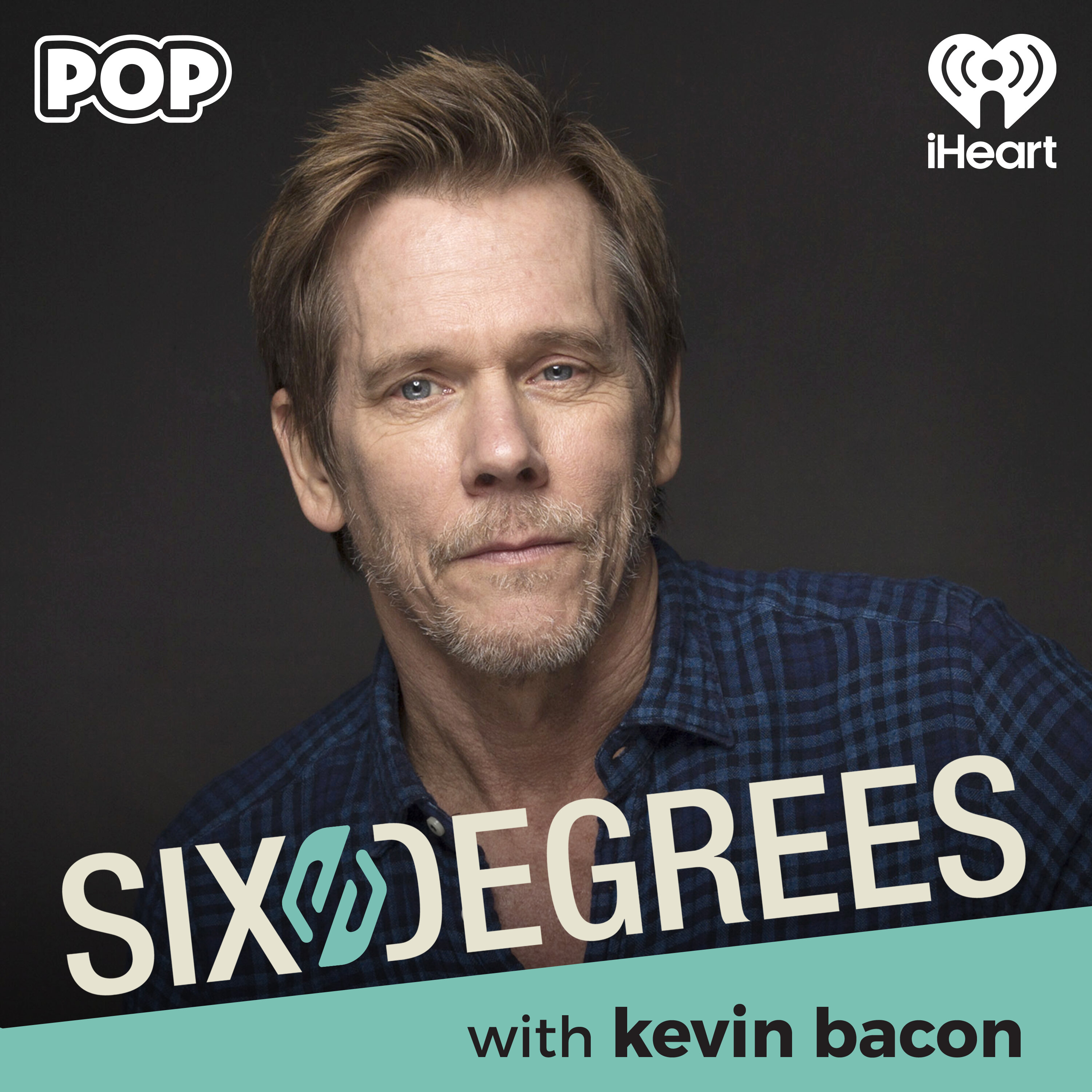
Six Degrees with Kevin Bacon
iHeartPodcasts and Warner Bros
SmartLess
Jason Bateman, Sean Hayes, Will Arnett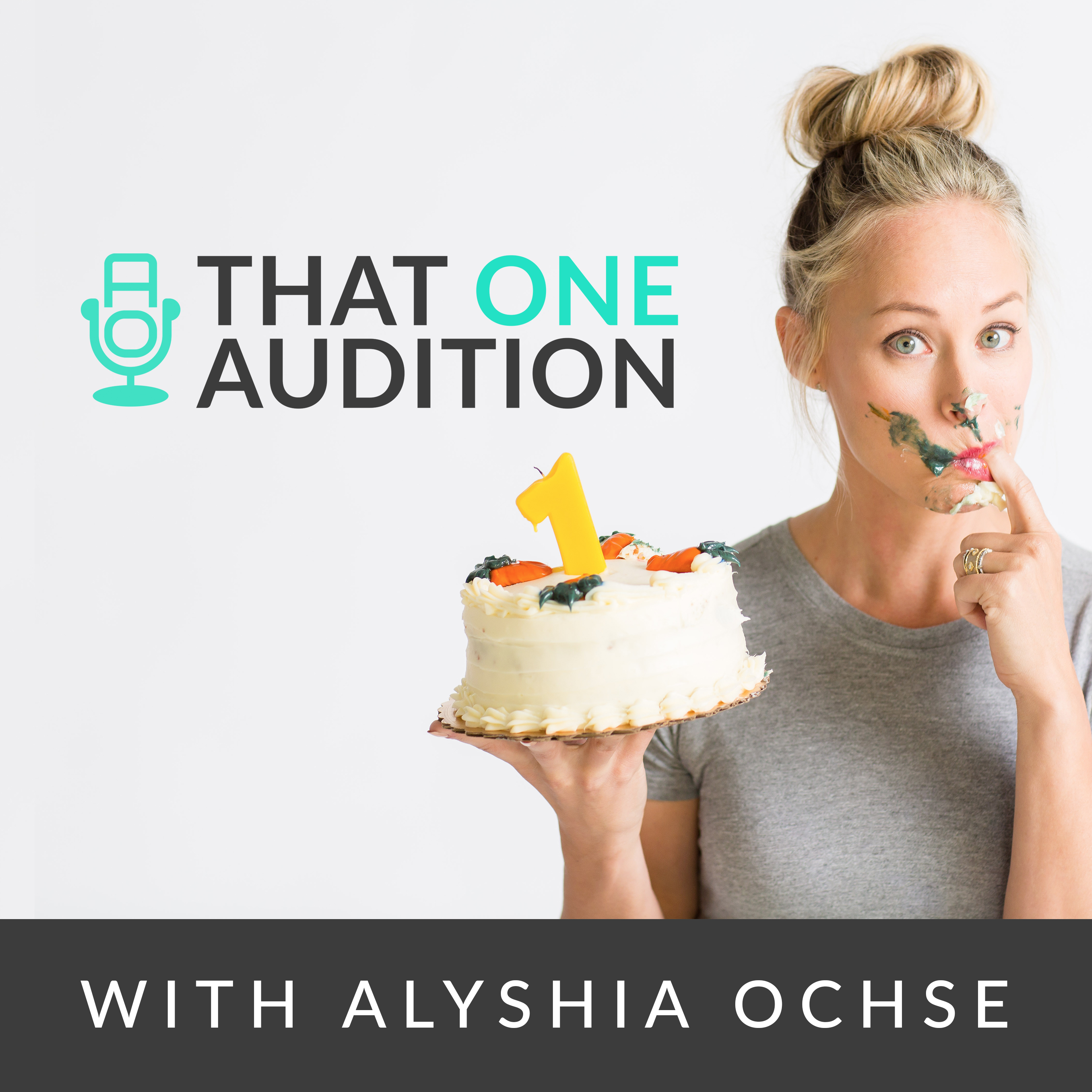
That One Audition with Alyshia Ochse
Alyshia Ochse
The 98%
Alexa Morden
The Acting Podcast from The BGB Studio
Risa Bramon Garcia and Steve Braun